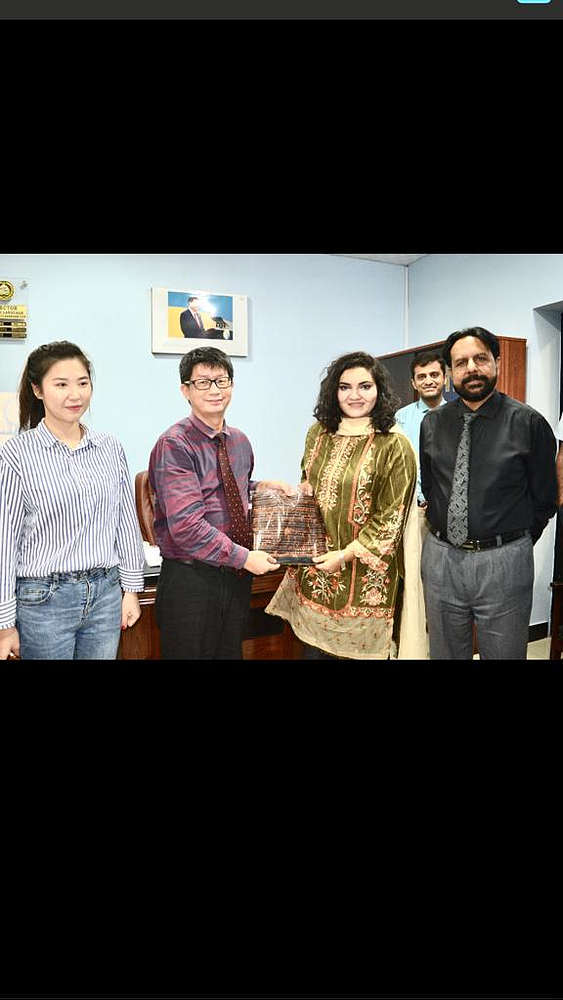خلاصہ
A highly motivated development professional with diversified experience in M&E and project management and effective with over 5 years’ experience on an international organization level. An additional 5 years’ experience in national development projects. An organized team player with good communication skills, and the ability to prioritize workloads within pressurized and insecure and non-permissive environments.
Key skills include:
Personnel Management.
Direct line management responsibility for up to 13 personnel, local and expatriate, including recruitment, deployment, training & development in a wide range of front line and office environments. Ability to manage diverse teams effectively to deliver agreed goals.
Security Management
Compliance with organizational security systems and protocols to ensure the safety and security of all personnel and assets, including fleet, premises etc.. Responsible for field management of personnel in insecure environments, implementing protocols and procedures on the ground.
Communications
Strong ability to communicate effectively in a wide range of often high-pressure environments, across multiple stakeholders and at all levels from senior government officials, international operational teams and the media to members of the public.
KOBO Toolbox
Leading the Mobile based Monitoring through the Kobo Toolbox. Have designed M&E tools on KOBO and data is collected through KOBO. The data is auto analyzed.
پراجیکٹس
تجربہ
Project Manager/Head of M&E
As a Project Manager/Head of Monitoring & Evaluation (M&E) and NFE Coordinator, I lead strategic planning, implementation, and evaluation of projects, ensuring alignment with organizational goals. I integrate health and education initiatives, particularly for underserved communities, by designing health education modules for women and girls on reproductive health, family planning, and preventive care.
Key Achievements:
Health & Safety for Brick Kiln Workers (SPARC Initiative):
Developed health and safety programs, including health screenings, vaccinations, and training on occupational hazards and first aid.
Improved working conditions by providing PPE, clean water, and sanitation facilities.
Partnered with local health authorities and NGOs to offer medical camps and emergency care.
Reduced occupational injuries and illnesses by 30% within a year.
Research Project Management (Johns Hopkins University & Aga Khan University):
Managed large-scale research projects, ensuring compliance with ethical standards and meticulous documentation.
Coordinated international and local partners, maintained centralized databases, and prepared detailed reports.
Supervised six district teams, ensuring consistent implementation of research activities.
District-Level Coordination & Team Supervision:
Established clear communication channels, provided technical support, and conducted field visits to ensure project quality.
Facilitated collaboration between district teams, government officials, and NGOs for project sustainability.
Strategic Leadership & Innovation:
Introduced digital tools for real-time data collection, improving efficiency and accuracy.
Developed feedback mechanisms to ensure culturally appropriate interventions.
Implemented risk management strategies to address challenges like data collection delays or community resistance.
Impact:
Improved health outcomes for brick kiln workers and enhanced NFE program reach, increasing enrollment and retention rates among women and girls.
Delivered high-quality research outputs that informed policy recommendations and program improvements.
Team Lead
District Team Lead (Case Worker) – UNICEF- Child Protection Project with Micro Merger Private Ltd.
Emergency Cyclone Response District Lead: Led emergency cyclone response efforts in Badin and Thatta districts, ensuring effective coordination and implementation of child protection initiatives. (Additional Assignment)
District Coordinator/Lead for JNA (Joint Needs Assessment): Collaborated with UNICEF and the Government of Sindh’s Education Department to conduct a comprehensive Education and Child Protection Survey in Jamshoro District. (Additional Assignment)
Key Responsibilities:
1. Administrative Case Management Supervision
Supervised the caseworker team to ensure effective implementation of case management processes in alignment with the Sindh Case Management Manual and guidelines.
Monitored the use of planning, monitoring, and reporting tools, ensuring timely and accurate completion by the caseworker team.
Maintained and updated spreadsheets with mapped services and focal points for service provision in collaboration with the District Child Protection Unit (DCPU) administration.
Conducted monthly reviews of case files using case file checklists to ensure compliance and quality.
Analyzed case trends to identify patterns and inform program improvements.
Prepared and submitted activity plans, weekly reports, and monthly reports in a timely manner.
2. Community and Interagency Coordination
Liaised with service providers, child protection (CP) partners, and government stakeholders to ensure the safe identification and referral of children at risk, adhering to the Sindh Case Management Manuals and guidelines.
Ensured the case management team maintained an up-to-date service mapping for the assigned geographical area.
Led inter-agency case conferences, presenting cases and addressing challenges in line with the Sindh Case Management Guidelines.
3. Case Management Team Leadership
Conducted regular case management meetings with the caseworker team (every 1-2 weeks) to review progress, address challenges, and plan next steps.
Promoted self-care and team-building activities to enhance team morale and productivity.
4. Communications and Working Relationships
Reported directly to the District Child Protection Officer (DCPU).
Supervised and provided guidance to caseworkers, ensuring effective implementation of child protection activities.
Collaborated with the DCPU Administrator for the overall management of field office activities.

Community Psychologist
This short-term emergency project, spanning 3 months, focused on providing immediate support to traumatized women and children affected by floods. Below is a breakdown of the key responsibilities and activities carried out:
1. Conducted Activities for Traumatized Women and Children
Objective: Provided psychosocial support and recreational activities to help women and children cope with trauma caused by the flood.
Activities:
Organized group therapy sessions and trauma counseling.
Facilitated recreational and play-based activities to promote emotional healing.
Distributed essential supplies (hygiene kits, toys, etc.) to affected families.
Collaborated with local mental health professionals to ensure effective support.
2. Designed Safe Spaces for Women and Children
Objective: Created secure and supportive environments for women and children in vulnerable areas.
Activities:
Identified and set up safe spaces in flood-affected communities.
Ensured these spaces were equipped with basic amenities (sanitation, water, lighting).
Trained staff and volunteers to manage and maintain safe spaces.
Implemented safety protocols to protect women and children from harm.
3. Conducted Educational and Skills Programs
Objective: Empowered the vulnerable community through education and skill-building initiatives.
Activities:
Organized literacy and numeracy classes for children.
Provided vocational training for women (e.g., sewing, handicrafts, small business skills).
Conducted life skills workshops (e.g., financial literacy, health education).
Distributed educational materials and resources.
4. Addressed Child Protection and Gender-Based Violence (GBV) Cases
Objective: Addressed and mitigated child protection and GBV issues through referral pathways.
Activities:
Identified and documented cases of child protection and GBV.
Provided immediate support and counseling to survivors.
Established and strengthened referral pathways with local authorities, healthcare providers, and legal aid services.
Conducted awareness sessions on child protection and GBV prevention.
5. Implemented Canadian Research Power Manual by Right to Play
Objective: Utilized the manual to guide program implementation and ensure effective outcomes.
Activities:
Trained staff and volunteers on the principles and methodologies outlined in the manual.
Integrated the manual’s guidelines into all project activities.
Monitored and evaluated program effectiveness using the manual’s framework.
Documented lessons learned and best practices for future reference.
Project Timeline (3 Months)
Month 1: Conducted assessments, planning, and setup of safe spaces. Recruited and trained staff/volunteers.
Month 2: Implemented activities (psychosocial support, education, skills training, and case redress).
Month 3: Continued implementation, monitoring, and evaluation. Prepared final reporting and documentation.
Achieved Outcomes
Improved mental health and well-being of women and children.
Enhanced safety and security for vulnerable groups.
Increased access to education and skills development.
Strengthened referral systems for child protection and GBV cases.
Effectively utilized the Canadian Research Power Manual to achieve project goals.
This project successfully provided immediate relief and laid the groundwork for long-term resilience-building for flood-affected communities, with a focus on women and children.

Program Officer
Key Responsibilities (Past Role):
Community Engagement:
Successfully formed and strengthened 25+ community groups of women cotton workers across target districts in Sindh.
Conducted participatory rural appraisals (PRA) and community needs assessments in 15+ villages, identifying key challenges and opportunities for intervention.
Stakeholder Coordination:
Identified and coordinated with 50+ stakeholders, including local government officials, NGOs, and community leaders, to ensure collaborative efforts.
Facilitated partnerships with 10+ organizations to support program objectives.
Social Mobilization & Awareness:
Organized 30+ social mobilization sessions, reaching over 1,000 women cotton workers.
Conducted 20+ training sessions on women’s rights, labor justice, and climate change impacts, benefiting 500+ participants.
Advocacy & Campaigns:
Led advocacy campaigns resulting in improved awareness of women cotton workers’ rights and decent work conditions.
Successfully influenced local policies to better protect women workers in the cotton sector.
Documentation & Reporting:
Prepared 15+ detailed field reports and 10 impact case studies, highlighting program successes and lessons learned.
Documented success stories that were shared with donors and stakeholders, contributing to increased funding and support.
Achievements:
Increased awareness and empowerment of 1,000+ women cotton workers on their rights and climate change adaptation.
Strengthened community-led initiatives, resulting in improved working conditions for women in the cotton sector.
Enhanced organizational visibility and credibility through effective advocacy and stakeholder engagement.
Principal / Manager
Key Responsibilities:
· Maintain clean and safe classroom environment for employees and Children.
· Look After whole School building 30 rooms and 3 grounds 2 floors.
· Keeping the Records of School’s Students, Staff members and Policies.
· Collaborate Actively with Sindh Education Foundation’s regional and district heads.
· Attend educational meetings related to Quality assurance.
· Time to time Training the Teachers as per their and students special needs.
· Collaborate with other Organizations and institutions for combine activities.
· Supervise and monitor Exams conduction, Checking procedures, faculty and lower Staff.
Taking Interviews, Hiring, Firing of staff and Making ACRs individually
Deputy Director
• Coordinate classes and activities with Chinese faculty.
• Plan, support and execute the activities related to Chinese Traditions Culture and other Significant Days.
• Coordinate Finances between School –Confucius Department and Parents.
• Managing Time table and Availability of Foreign Faculty in School Premises.
• Ensure Safety, Security and Protocols of External Foreign Staff.
Principal
Principal, Pak-China International School & College system
Academic Coordinator / Vice Principal
Customer Support Representative (Service Desk Analyst)
Area of responsibility 1: Call/Incident Handling
· Provide essential support to Customer’s PC users in UK, software/ hardware related issues.
· Assist users over telephone/e-mail/ web interface.
· Diagnose and solve software, hardware problems by giving instructions.
· Provide advanced support to Customer’s PC using remote control tool.
· Escalate unsolved calls to the appropriate team, Network/Server Support team, Application Support team or PC Support team.
· Log all calls in the Helpdesk tracking database.
Area of responsibility 2: Knowledge management
· Learn and implement new technologies, tools, processes and policies
· Document new technical solutions in knowledge base
· Document and share best practices and with other colleagues
Area of responsibility 3: General
· Excellent Customer and Time Management Skills
· Work according policies
· Additional tasks related to team work and office.
Children English Language Teacher
Key Responsibilities
· Maintain clean and safe classroom environment for children.
· Coordinate with other teachers and principal to develop lesson plans for children to develop their emotional, social, physical and intellectual skills.
· Observe the child and understand the child’s needs.
· Stimulate environment to facilitate children’s interests, exploration and participation.
· Treat all children unconditionally and with same importance level.
· Coordinate regular communication with parents regarding their children’s progress.
· Supervise and manage children both inside and outside the classroom.
Monitor and track children progress on regular basis. Update progress sheets time to time of individual student Attend meetings with staff and principal /head of institute.





